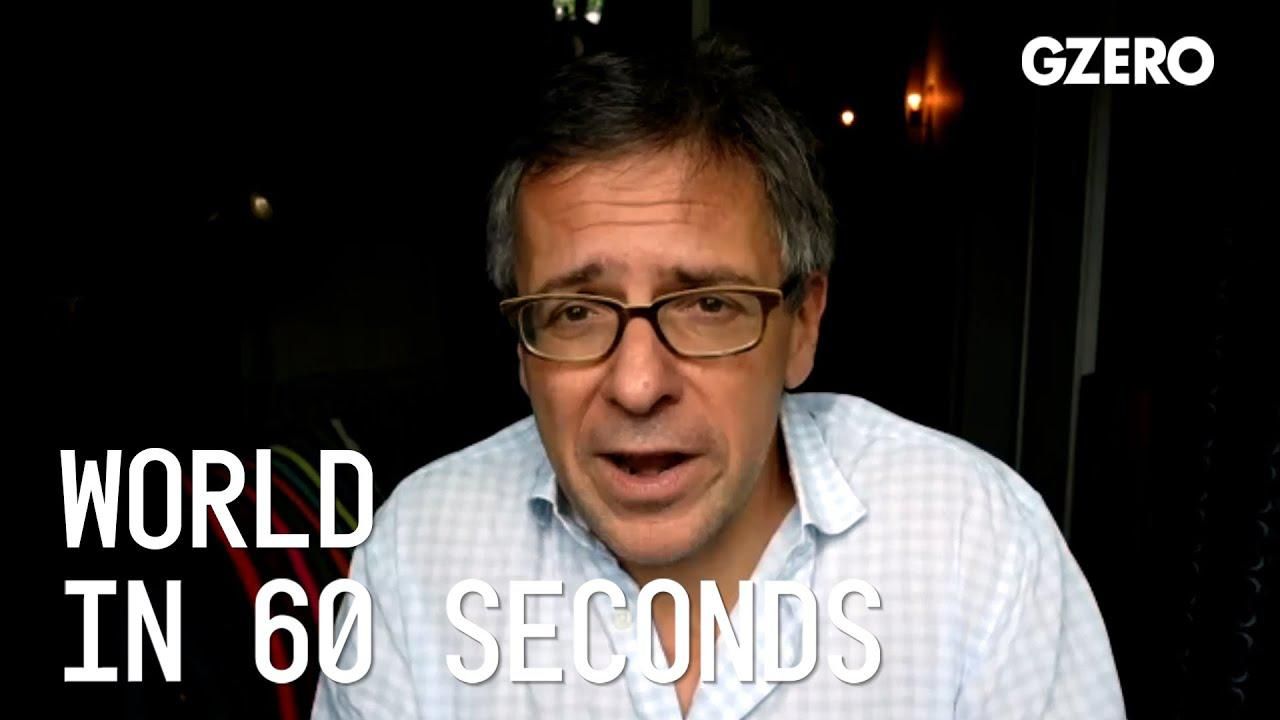Ian Bremmer shares his insights on global politics this week on World In :60:
Is Russia waging a gas war with Europe?
They certainly are. You have Nord Stream 1 back online after scheduled maintenance, and first was 40%, now 20% of normal volumes. Technical problem, that's what the Russians say. But of course, in reality it is because they know that the Europeans are moving to diversify away from Russian energy as fast as possible and the Russians are not letting them do it on their timeframe. Winter's coming and Russia's best opportunity to undermine European leaders and get a whole bunch of Europeans saying, "What are you doing? Why are you sanctioning the Russians, you're hurting us. We are the ones that are facing the economic pain as a consequence. We don't want you to." A bigger peace movement is if they make life impossible for the Europeans during winter this year. So, I mean, frankly, I'd be surprised if you have any Russian gas go into Germany, come winter this year. The Germans are aware of that possibility and they are very concerned about it. By the way, if the worse comes to worst you're talking about a 2a to 3% contraction of the EU economy. It's a big deal, but it's not a disaster. Next year will be easier for the Europeans.
Is the world prepared to combat the growing global monkeypox outbreak?
I wish we weren't talking about another major outbreak. We're talking about tens of thousands of cases already around the world, and we don't have enough vaccines, even though we do have vaccines for it. We don't have enough monitoring, even though we've just been through a global pandemic. The good news is the vaccine works. The good news is it's very rarely lethal, and it's not leading to huge numbers of hospitalization. So I'm not anywhere close to as worried about monkeypox as we have been about COVID. But still this is absolutely a serious disease and it is not one we are anywhere close to containing, hence the World Health Organization's statement over this week.
How is the UK race going to become the next prime minister?
Well, I mean, it's going in orderly fashion. No one is going to claim that it was rigged or that it's unfair or that you should stop the steal. No, one's saying that in the United Kingdom; no one said that in France during parliament elections. No one said that in Germany, when Scholz became chancellor. Only the United States among advanced industrial democracies; maybe we should learn something from that. But more importantly, we've got two serious contenders, Rishi Sunak and Liz Truss. Rishi kind of more the technocrat and Liz Truss more the populist. She certainly would not be the favorite in terms of EU-UK relations, though she does have more of the conservative base on her side. Look, it's going to be a closely run event. Could go either way from my perspective at this point. But what we do know is that Boris Johnson very soon will be no more.
- The tentacles of a global energy crisis - GZERO Media ›
- The EU's natural gas troubles won't end after ditching Russia ... ›
- The myth of feeling safe from the pandemic: former CDC chief Tom ... ›
- Should we worry about monkeypox? - GZERO Media ›
- Britain's next prime minister - GZERO Media ›
- How new UK PM Liz Truss will impact UK/EU relations - GZERO Media ›
- Who blew up the Nord Stream pipelines? - GZERO Media ›
- Who blew up the Nord Stream pipelines? - GZERO Media ›
- Nord Stream explosion mystery: We need proof, says Estonia's PM Kaja Kallas - GZERO Media ›
More For You
Think you know what's going on around the world? Here's your chance to prove it.
Most Popular
The US government will reportedly fund MAGA-aligned parties and think tanks in Europe. But with US President Donald Trump’s favorability in Europe so low, do they even want the money?
Zelensky agrees: elections matter #PUPPETREGIME
As more small businesses move sales, payments, and customer relationships online, they unlock new opportunities, but they also become easier targets for cyber-criminals and other threat actors.
